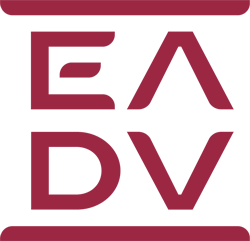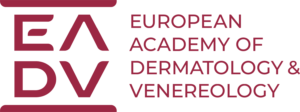Initiatives for sustainability at the EADV Congress
The European Academy of Dermatology and Venereology annual Congress is a pivotal event within the dermatology community.
EADV is dedicated to integrating sustainability into its educational and congress activities. This initiative aligns with the highest standards and best practices championed by leading organisations globally, reflecting the Academy’s commitment to sustainability.
Key initiatives for a more sustainable organisation and management at the EADV Congress
Congress content and focus on climate
Integrating climate change topics into the Congress agenda.
Highlighting the intersection of dermatology and climate through targeted sessions and expert panels.
Registrant awareness of climate and dermatology
Educating attendees on the impacts of climate change on dermatology and venereology.
Promoting sustainable practices among registrants.
Participate to the survey available in the Congress virtual platform
Eco-friendly initiatives at the Congress
Optimizing space by re-allocation to sizeable rooms for the scientific sessions
Using recyclable / reusable carpet and structures
Reduction of printed signage in favour of digital and recyclable supports
No printed programmes, forms, or leaflets
Promotion of sustainable travel models
Public transportation pass for all registered delegates and exhibitors.
Encouraging eco-friendly travel options for congress attendees.
Implementing initiatives to reduce the carbon footprint of travel associated with the congress.
Eco-conscious catering service
Planned to reduce food waste
Food donations to the Salvation Army and food banks
Priority to locally sourced food
Pedal to Paris – Join the EADV Cycle to Congress Initiative!
The EADV Congress in Paris offers the perfect opportunity to combine professional growth with an active, social, and eco-friendly journey.
Are you located within a few hundred kilometers of Paris? Why not turn your journey into a memorable experience and cycle to the congress with your colleagues?
Not only will you stay active and reduce your carbon footprint, but you’ll also enjoy the beauty of nature, lower stress levels, and create lasting memories before immersing yourself in cutting-edge dermatology updates at the event.
This initiative, in collaboration with the EADV Climate Working Group, supports our shared commitment to promoting more sustainable travel options.
Special arrival event
While not everyone has the option to cycle, we want to support and celebrate those who do. We have planned a special arrival event for all participants!
Plan your ride now!
7 steps
towards a sustainable commitment
Here are our suggestions for participants who want to join us in our commitment to sustainability during the EADV Congress
1.
Support our sustainability efforts:
The organization is dedicated to making this event sustainable. Please contribute by adopting eco-friendly habits throughout your stay.
2.
Thoughtful planning:
Consider reducing your travel impact before attending the event. Opt for eco-friendly alternatives and make use of the public transport pass included in your registration.
3.
Respect the local community:
Our host city is home to many. Let’s treat it with the same care and respect we would our own.
4.
Proper waste disposal:
Recycling stations with separate bins will be available throughout the venue. Please use them correctly to minimize waste.
5.
Conserve energy:
Help us save energy by turning off your devices when not in use.
6.
Water conservation:
Water is a valuable resource. Let’s do our part by using it mindfully.
7.
Raise awareness:
Spread the word about sustainability! Share your knowledge and inspire fellow participants to make positive changes.

